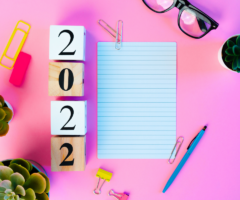Lockdown loneliness: 18 to 24-year-olds battle with mental health during restrictions
[Updated January 2021]
The current lockdown from 5th January is set to last for at least six weeks, with no end date being given just yet.
So, we’re getting to grips with the fact we're back in a national lockdown, again.
This news was a disappointing step backwards for everyone (do we really have to go back to those Zoom quizzes?!) and for those of you who may have struggled with your mental health during the first lockdown, it’s probably hit you harder this second time around.
But, if there's one thing we've learned during the pandemic, it's how to adapt, cope and ultimately survive in the most unpredictable of times.
Experiencing the first lockdown may have knocked you mentally, but it would have forced you to figure out the key things you need to do for yourself, to maintain a positive attitude.
Your mind matters
According to the mental health charity Mind, young people have suffered most with mental health during the pandemic, with three quarters (74%) of young people aged 18-24 saying their mental health has declined.
The main reasons for this decline:
- Feeling bored/restless (83%)
- Not being able to see friends (80%)
- Not being able to go outside as much (76%)
- Feeling lonely (72%)
- Anxiety about family and friends getting Coronavirus (64%)
Young people aged 18–24 reported worse mental health and wellbeing during lockdown than all other age groups, with nearly half (46%) saying their mental health was poor or very poor during lockdown.
Loneliness has been a key contributor to poor mental health in young people, as 72% feel being on their own has made their mental health worse. Adults too have struggled, with more than half saying their mental health has declined.
It might be hard to see the light at the end of the tunnel at the moment, but stay positive. With new promising science suggesting a vaccine could be in the process of being trialled and rolled out as part of a global immunisation plan, there's good reason to feel optimistic that our lives will return to normal.
In the meantime, we've put together a few of our own tips for helping to protect your mental health in lockdown 3.0.
You can find the full report from Mind here.
Please note: ingenie are not mental health specialists. If you are struggling with your mental health, please speak to a doctor or mental health expert for medical advice on how they can help you.
5 ways to stay on top form during lockdown
-
Plan and control what you can
The most difficult thing about lockdown is the lack of control we have over it. Knowing this, it's helpful to make plans for the things we can control. Although it's a small step, planning what we can will help us feel more settled for the time indoors ahead of us.
This can be as simple as making a daily or weekly timetable of our work, activities and tasks. Even writing down lists can make you feel more productive and give you something to work towards, however small.
Writing down your worries can also help you work out what no longer needs your attention. This can be a very therapeutic exercise, helping you work through your concerns and releasing them onto a page instead of letting them brew and spiral in your mind.
Try getting your thoughts out on paper before you head off to bed, or first thing in the morning to help you organise your mind.
-
Limit screen time
It's okay to spend time watching TV, but if it's affecting the time we could be spending on our physical and mental wellbeing, we're more likely to feel deflated and unmotivated.
Put the phone down for a few hours and do something else. It doesn't have to be as mundane as a sudoku puzzle - get creative! Do a workout, learn a dance routine, bake a cake, clear our your wardrobe, give your car some maintenance checks, whatever it is, just give your eyes a break from the screen.
-
Get into a sleep routine
When we lose all sense of routine it's easy to slip into bad habits and forget about taking care of ourselves. Having a good sleep routine is one of the most important things you can do to keep your mind performing at its best.
While you might not have a reason to get up and dressed at your usual morning alarm, do it anyway. Your body works on its own bespoke clock and messing around with your sleep can completely throw off your mood, energy levels, appetite... pretty much everything that makes you tick, infact.
-
Get your Vitamin D (even if it's not the sunny kind!)
We don’t have the added benefit of the days getting longer, warmer and brighter, so while it's harder to get outside this time around, it's so important to stay active and energised in the winter months.
Getting out of the house, even if it's a bit brisk, is great for a change of scene and a cure for restlessness. If you're able to and depending on where you live (only essential trips are allowed), going on a short drive is another good way to clear your head.
If you're self-isolating or unable to get out in the daylight, you can still keep your Vitamin D topped up in other ways. Eating foods like oily fish, eggs and some breakfast cereals are a great place to start, or even taking a vitamin supplement will help keep your bones and muscles fighting fit.
-
Stay connected with friends and family
Making sure we keep in touch with the people who make us happy is crucial in combatting loneliness. Although it's hard to see a lot of our loved ones right now, it's so important to put in the effort to stay connected with them.
If you're done with video calls (we don't blame you), just picking up the phone, heading out for some fresh air and chatting to a close friend will do wonders for your mood and help clear your headspace.
Need some extra inspiration?
Here's how the ingenie team got creative during lockdown.

By Katey Gregory
Katey Joined ingenie in 2014 and is in charge of all things social and content. She passed her driving test in 2015 and her first car is a Toyota Yaris T3 named Tyrone.








